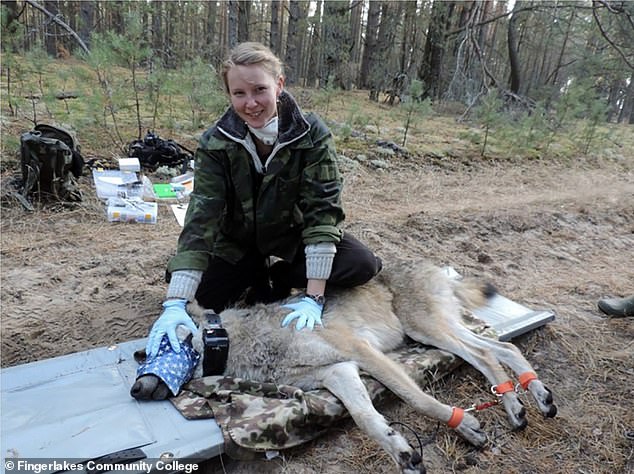
In the desolate aftermath of the 1986 Chernobyl nuclear disaster, where once bustling human settlements were replaced by a toxic wasteland, an unexpected phenomenon has emerged – mutant wolves equipped with a remarkable superpower that could hold the key to advancing cancer research.
Within the Chernobyl Evacuation Zone (CEZ), devoid of human presence due to the perilous radiation levels, researchers have discovered a population of wolves boasting genetically altered immune systems that exhibit an unusual resilience to cancer. This newfound ability has sparked hope among scientists that insights gained from studying these mutant wolves could potentially lead to breakthroughs in cancer treatments for humans.
Following the catastrophic explosion at the nuclear power plant in 1986, which forced mass evacuations and left the region uninhabitable, the absence of human interference allowed wildlife to flourish in the CEZ. Grizzly bears, bison, lynx, foxes, beavers, boars, elk, deer, raccoons, and over 200 species of birds now call this radiation-infused area home.
In 2014, evolutionary biologist Cara Love and her team from Princeton University embarked on a mission to unravel the mystery behind how animals, particularly wolves, managed to survive the cancer-causing radiation in the CEZ. Blood samples were drawn from the mutant wolves, and GPS collars with radiation dosimeters were affixed to monitor real-time exposure levels.
Despite receiving potentially lethal doses of radiation daily, the wolves displayed an unexpected resilience, prompting researchers to delve into the genetic differences between the mutated wolves within the 1,000-square-mile CEZ radius and those outside it. The study revealed that, astonishingly, the wolves exhibited new mutations in genes associated with cancer, suggesting an evolutionary adaptation to protect against radiation-induced harm.
Presented at the Annual Meeting of the Society of Integrative and Comparative Biology in Seattle, Washington, last month, this groundbreaking research offers a glimpse into the potential future of cancer treatment. The hope is that by understanding the genetic mutations that confer resilience in these mutant wolves, scientists may identify similar mutations in humans, potentially reducing the risk of cancer.
However, Love and her team faced setbacks in their research due to the challenges posed by the ongoing Covid-19 pandemic and the conflict in Ukraine. Despite these obstacles, the long-term vision remains focused on leveraging the insights gained from the mutated wolves to unlock new avenues in cancer research for human patients.
The Chernobyl disaster, occurring on April 26, 1986, marked the worst nuclear accident in history. The explosion and subsequent release of cancer-causing radiation led to the evacuation of more than 150,000 people, leaving behind a barren and toxic wasteland that, even 50 years later, remains inhospitable to human survival.
Over the years, researchers have explored the CEZ to comprehend how various species have adapted and thrived in this challenging environment. From mutated tree frogs to a surge in the population of rare wild horses, these findings provide valuable insights into the biological responses to prolonged environmental stress.
In the grand tapestry of post-apocalyptic Chernobyl, the mutant wolves stand as unlikely heroes, offering a potential beacon of hope for humanity in the quest for innovative cancer treatments. The unfolding story of these resilient creatures may hold the key to answering the pivotal question of survival in the face of relentless environmental challenges, transcending species boundaries and offering profound implications for both wolves and humans alike.
RELATED ARTICLES
- Russia Fires Barrage of North Korean Missiles at Kyiv After US Visit
- Ex-Wagner fighters Join Free Russia Army's Battle to Liberate Russia from Putin Occupation
- Putin says NATO Troops are already in Ukraine But Russia is Still Winning
- EU to use Russian assets to buy arms for Ukraine
- France will Send its Army to Defend Ukraine against Russia Soon












I have read and seen a video 2 years ago of people still living on their small farms and doing OK in the Chernobyl Evacuation Zone (CEZ)!